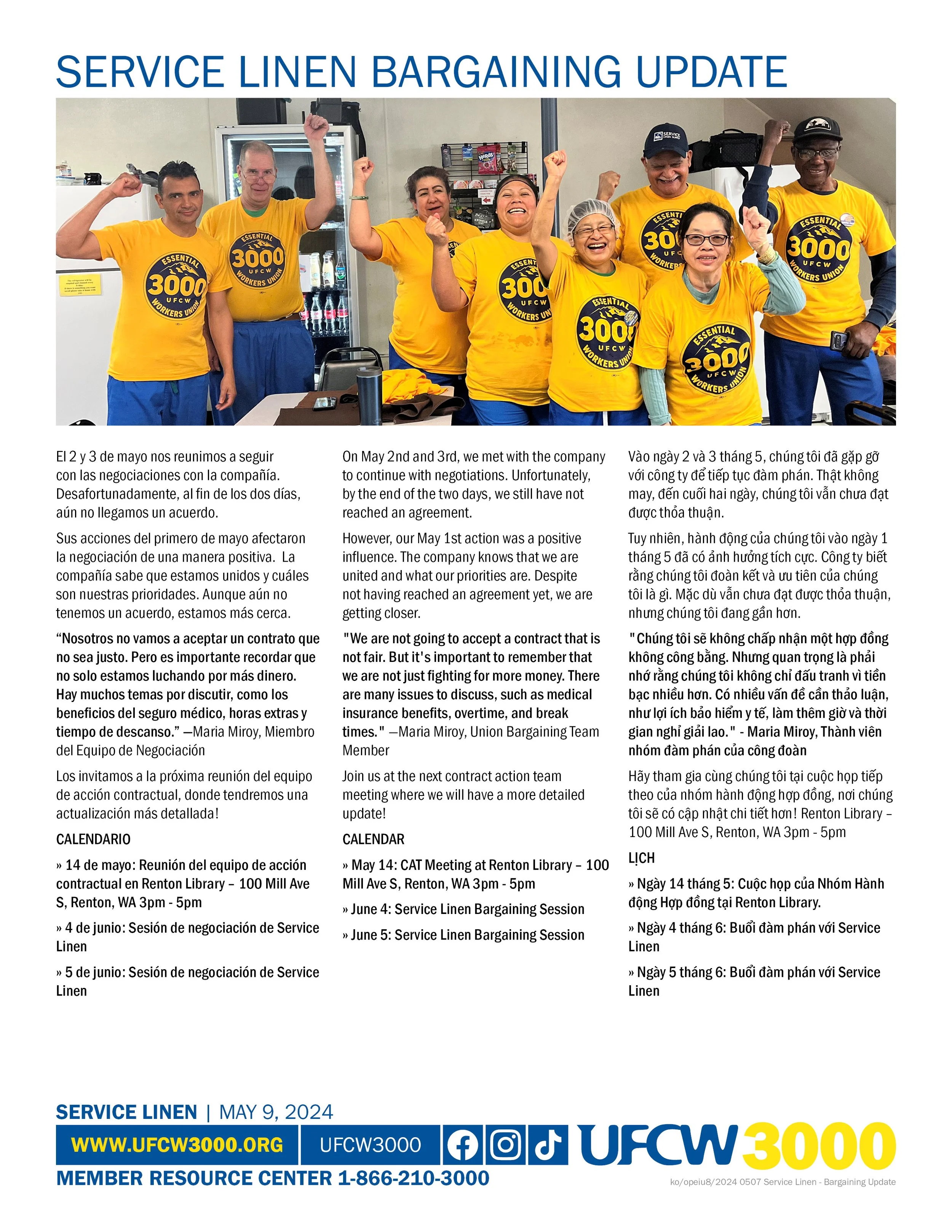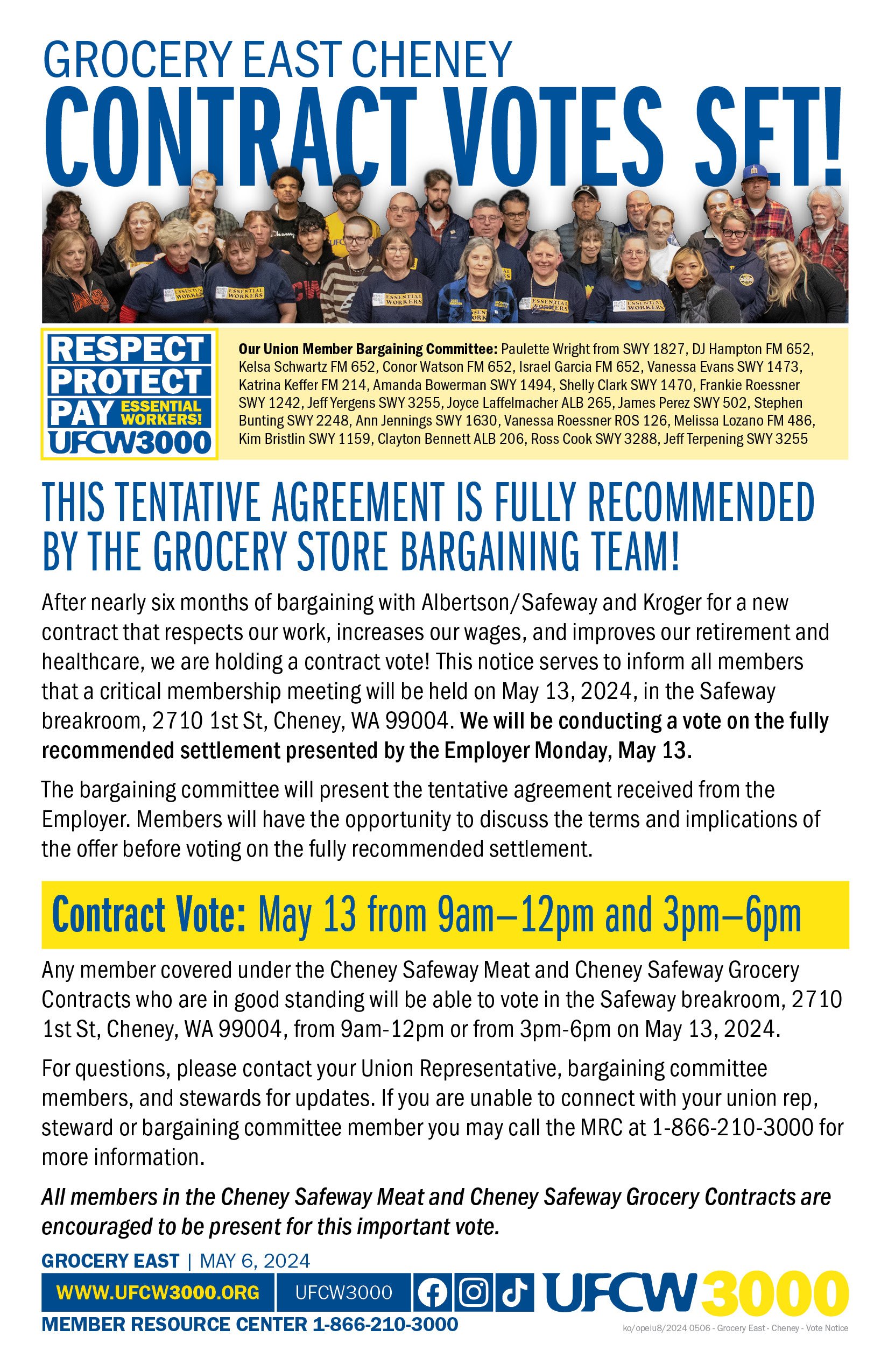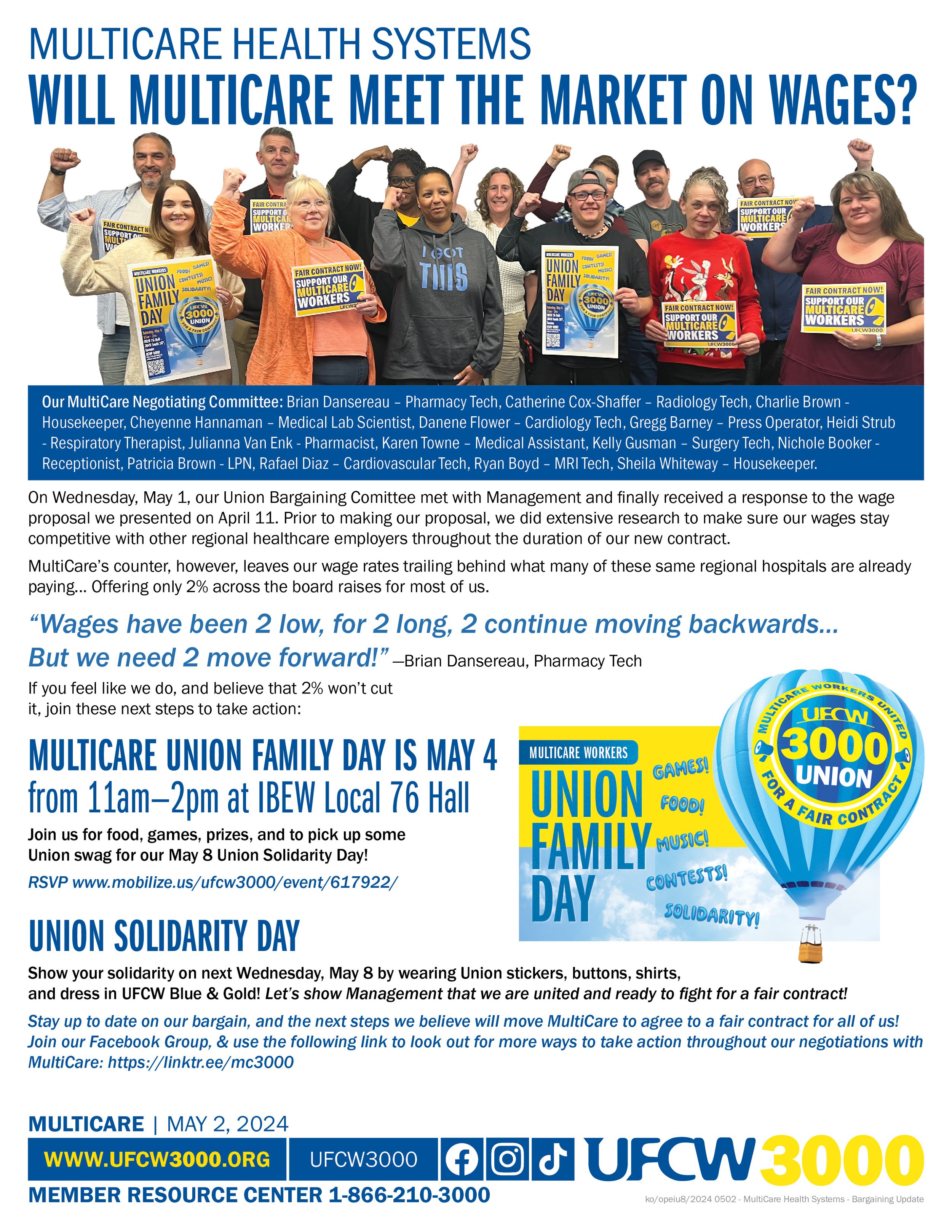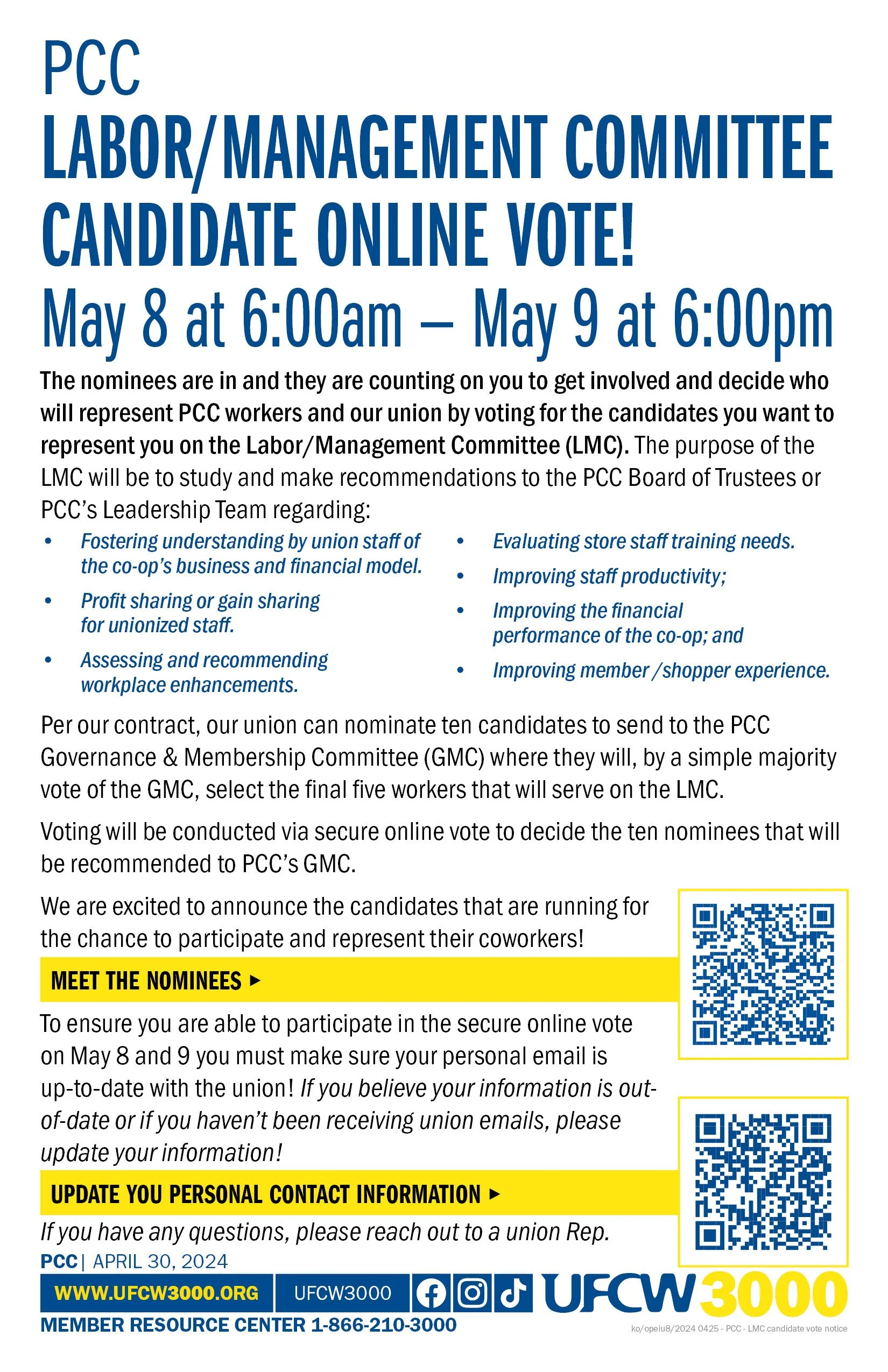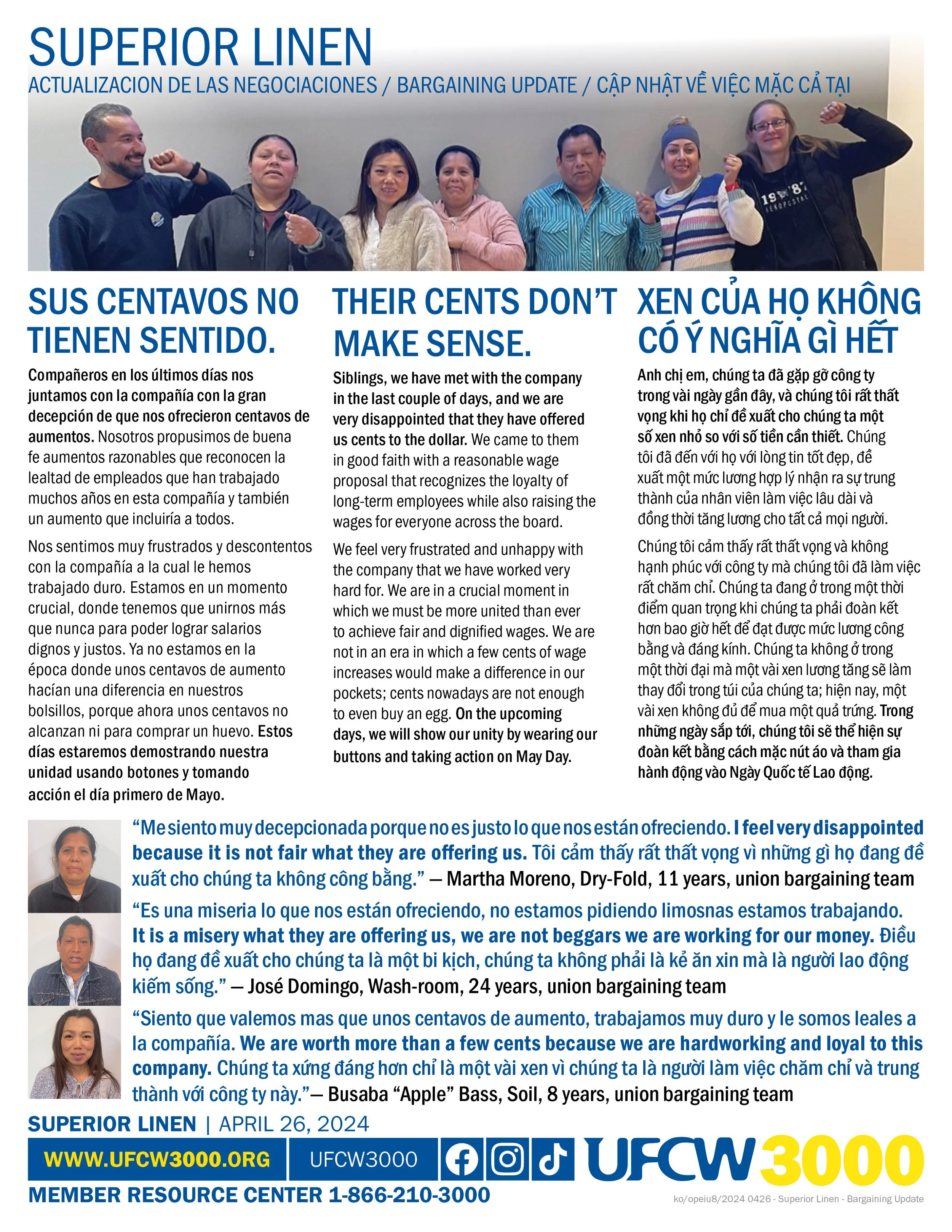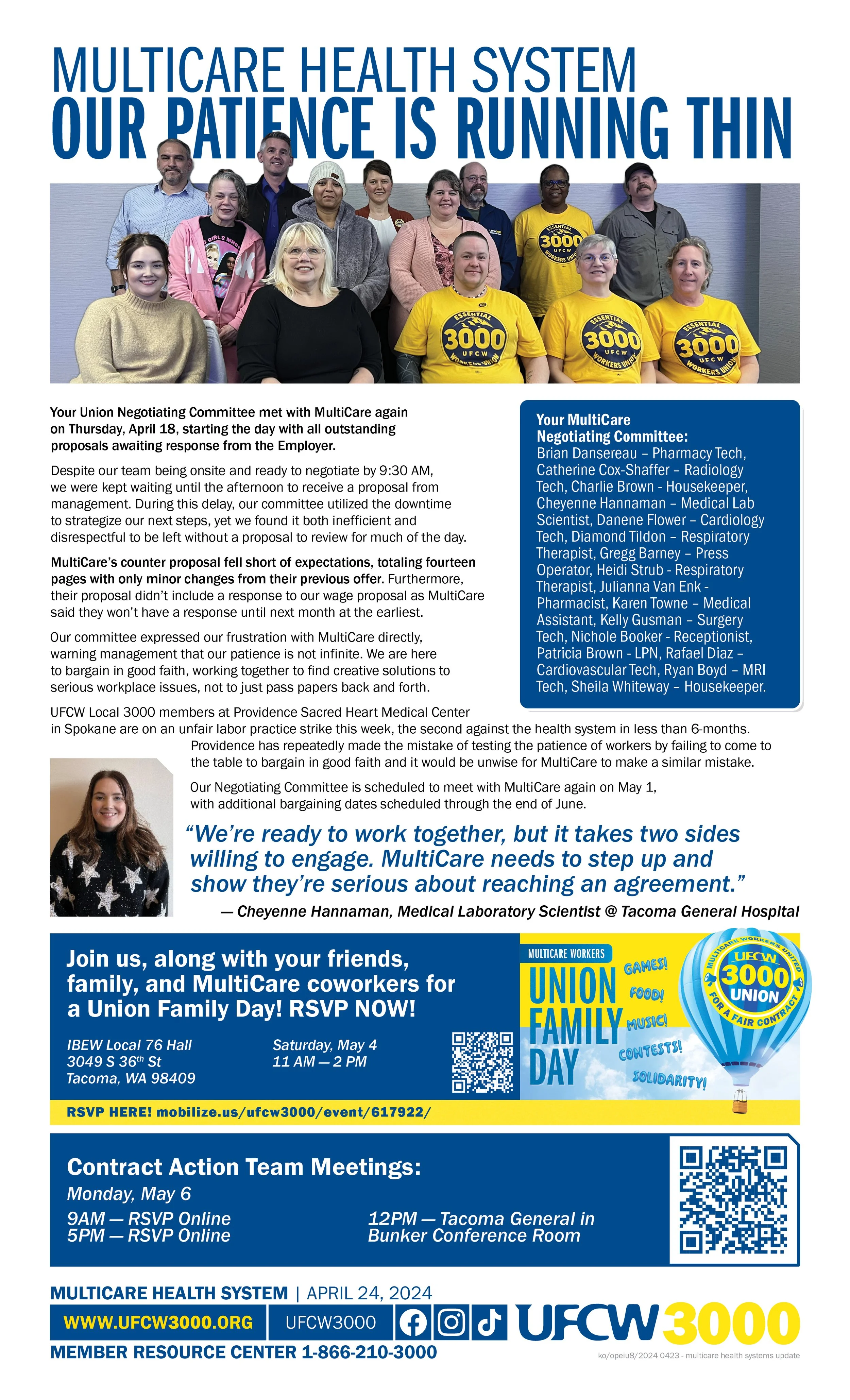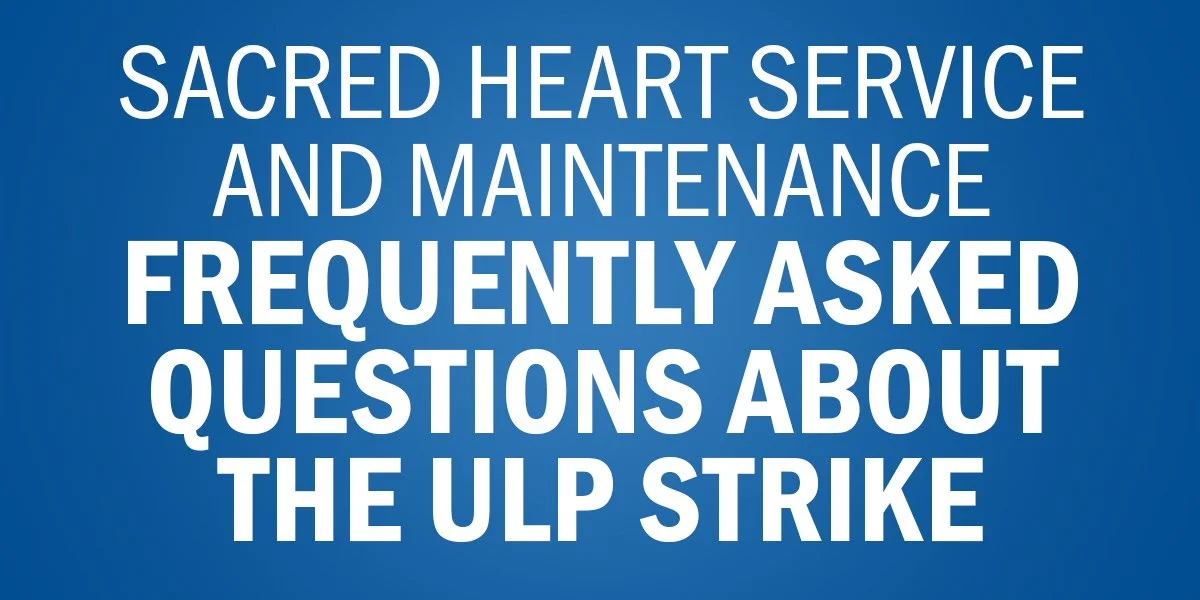Protections in Washington State for High-Risk Workers
/NEW April 8, 2021: The proclamation protecting high-risk workers has been updated in the face of increased vaccination of Washington’s population, the length of the COVID-19 pandemic, and updates to the CDC’s categories of at-risk people. The information on this page has been updated to reflect the new modifications to these protections.
Governor Inslee has issued and extended a proclamation protecting working people who may be at higher risk for serious illness or complications from COVID-19. This proclamation is in effect through the end of Washington’s state of emergency, or until otherwise amended or rescinded. There is no set date for the expiration of these protections.
Workers who are covered by this proclamation are called “high risk employees,” and the term means anyone defined by the Centers for Disease Control as being more likely to get severely ill from COVID-19, as outlined on the CDC’s website listing risk factors and medical conditions that current science says may make someone more likely be hospitalized, need intensive care, require a ventilator to breathe, or even die if they were to contract COVID-19. Click the button below for the CDC’s list of these conditions.
In Washington State, your employer is required to provide accommodations to you at work that protect you from risk of exposure to COVID-19 if you are a high-risk employee and you request accommodations. These accommodations can include, but are not limited to:
telework
alternative or remote work locations
reassignment
social distancing measures
If your employer determines that an alternative work arrangement is not feasible for you, they must permit you to use all your available accrued leave options or unemployment insurance, in any sequence and at your discretion, and they cannot retaliate against you for doing so. If you use up your paid time off, your employer still cannot permanently replace you at work for exercising your rights under this proclamation.
Effective April 23, 2021, your employer can require medical verification to confirm you are covered under these protections. According to the Governor’s new order, they are required to follow the same interactive process required by state and federal disability laws, which means you should have a reasonable amount of time to respond. You or your employer can start the process of providing medical verification as soon as April 9, 2021, but your employer can’t mandate that you start this process before April 23, 2021.
Also effective April 23, 2021, your employer does not have to maintain your employer-related health insurance benefits unless you are otherwise eligible for Family Medical Leave Act (FMLA) status or an extension of your benefits is covered by your contract or other condition of employment.
If your employer wishes to terminate your health benefits or change your alternative work arrangement, they must give 14 days notice in writing. They are still required to utilize all available options for alternative work assignments to protect you from exposure to COVID-19 if you are a high-risk worker and you request protections. These protections are in effect for both public- and private-sector workers. There are no exceptions.
If you would like to exercise your rights under this proclamation, and your employer doesn’t allow you to do so, connect with your Union Rep for help.
UNEMPLOYMENT ELIGIBILITY
Worker successfully made the case for some updates to our state’s unemployment insurance system, and that has included making high-risk workers’ eligibility for unemployment insurance during public health emergencies like the COVID-19 pandemic part of state law. Thank you to the workers who fought for these protections and the lawmakers who listened. Read more about this state law here.
As of April 4, 2021, an unemployed person who has left work voluntarily and is high risk or lives with someone who is high risk is eligible for unemployment benefits in our state. Speak with your Union Rep to discuss your options for workplace accommodations that will protect you and unemployment insurance benefits if you are on leave.
Scroll down for a list of answers to Frequently Asked Questions on our state’s high-risk worker protections and a list of health conditions that may put you at higher risk for serious COVID-19 complications.
Further Reading:
Governor Inslee’s modification of the original proclamation (April 8, 2021)
Governor Inslee’s extension of the proclamation (July 29, 2020) - This extension will be rescinded as of April 23, 2021
Governor Inslee’s memo clarifying the extension of the proclamation (July 29, 2020) - This memo will be rescinded as of April 23, 2021
Governor Inslee’s original proclamation protecting high-risk workers (April 13, 2020)
CDC’s list of conditions that may put you at increased risk for severe illness from COVID-19 (revised March 29, 2021)
Frequently Asked Questions About High-Risk Worker Protections
Are health care workers, essential workers, or any other category of workers excluded from these protections?
No. There are no exclusions. Regardless of your job, if your health care provider determines you are a high-risk employee, your employer must offer you accommodations and protections under this proclamation.
What kind of verification do i need to provide to my employer to show that I am a high-risk employee?
Your employer can require medical verification from a health care provider who assesses your medical condition, vaccination status, and the circumstances of your job or workplace to determine whether you are high risk and whether you can return to the workplace with additional accommodations to protect you from exposure. If your employer is not accepting documentation you think is sufficient, contact your Union Rep for support.
Can my employer contact my doctor or health care provider without my permission?
No. Providing your employer with documentation of your status as a high-risk employee does not give a health care provider the right to share further information about your health with your employer, unless you have given them explicit permission to do so. (If you signed a document releasing your medical information, check carefully to see what it allows your provider to share.) Sharing medical information without your consent could be a violation of the Health Insurance Portability and Accountability Act (HIPAA), and if it happens you should contact your Union Rep to determine next steps that protect your privacy and your right to accommodations.
If my employer offers accommodations that I don’t think are good enough to keep me safe, do I have to accept them anyway?
No, you have a say in what accommodations are safe for you. The governor’s proclamation says decisions about this “cannot be left solely to the employer.” Again, if your employer is not offering acceptable accommodations, talk to your Union Rep.
My employer wants me to telework, but I would rather take leave. Can I do that?
You may be able to choose leave instead of telework, but it’s not a guarantee. You should request what you think is safe and fair, and get support from your Union Rep to make it happen if your employer refuses to accommodate you. The state has asked employers to be flexible with employees and respect requests for leave, and gives you a say in what you consider safe. Your employer may be able to argue that telework is appropriate.
can my employer force me to return to work if i am vaccinated, or because i have been working from home or on leave for a certain period of time?
If your medical provider has verified that you are a high-risk employee and should not return to the workplace, your employer cannot require you to return by threatening to terminate your position, and they must continue to provide you with accommodations that protect you against exposure to COVID-19.
What kinds of paid leave can I use if my employer can’t protect me from exposure at work?
You can use any accrued leave you have, including vacation, sick, compensatory time, exchange time, personal holiday, or federal Emergency Paid Sick Leave. You can also use Unemployment Insurance during your time away from work, even though your employer is not allowed to permanently replace you.
How do I use Unemployment Insurance for this purpose?
When you file for unemployment, your employer should provide the state’s Employment Security Department with appropriate documentation to support your unemployment claim. If you need help applying for unemployment, contact your Union Rep or get in touch with our partners at the Unemployment Law Project.
Do I have to use all my accrued leave first before filing for unemployment?
No. Under this proclamation, workers in high-risk categories are allowed to use accrued leave or unemployment insurance in any order and at your discretion. Your employer cannot force you to use up your accrued leave before you file for unemployment.
CDC List of Potentially Higher-Risk Conditions
The CDC has altered the way they categorize the risk factors and medical conditions that can put people at increased risk for severe illness if they were to contract COVID-19. There is no longer a distinction between “at increased risk” or “might be at increased risk.” Instead, they list all health conditions or health histories that current science says may contribute to a person’s higher risk of COVID complications, and they provide links to the science they rely on to make these decisions. The CDC list is regularly updated, and includes a link at the top of the page so you can see the last time they made an edit to their list. As of April 13, 2021, here are some of the health conditions that are included:
Cancer or a history of cancer
Chronic lung or kidney disease
Dementia or other neurological conditions
Diabetes
Down syndrome
Heart conditions
HIV
Weakened immune system (being immunocompromised)
Liver disease
Body Mass Index over 25 (being overweight or obese)
Pregnancy
Sickle cell disease or thalassemia
Being a current or former smoker
Solid organ or blood stem cell transplant
Stroke or cerebrovascular disease
Substance use disorders (such as alcohol, opioid, or cocaine use disorder)



